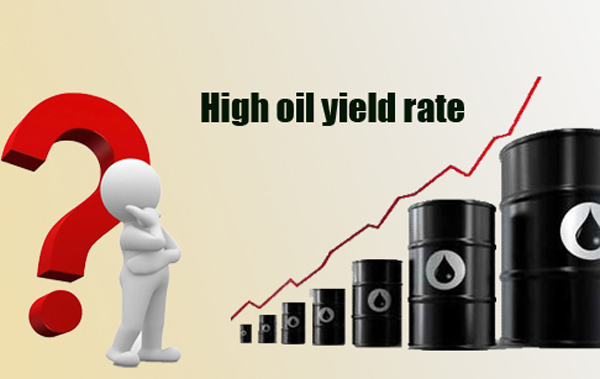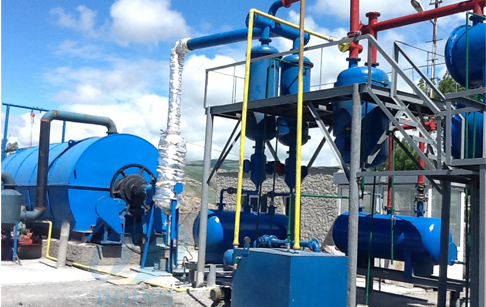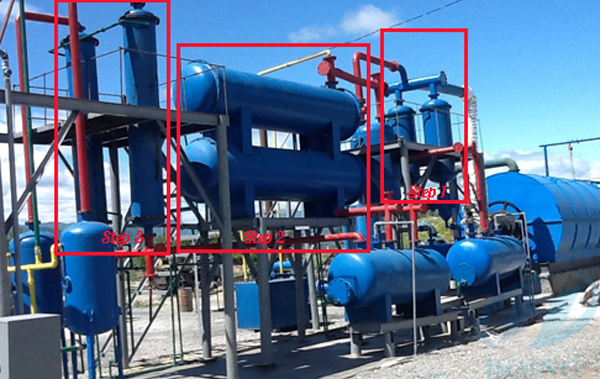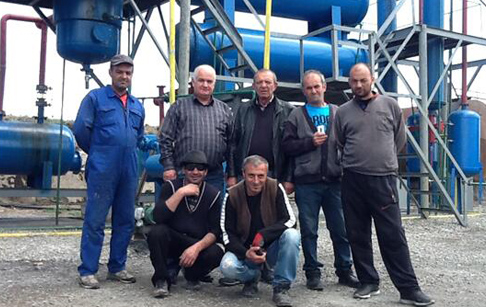 Home > FAQ > Waste Tire/Plastic Pyrolysis Plant>How to judge the waste tire pyrolysis plant oil yield?
Home > FAQ > Waste Tire/Plastic Pyrolysis Plant>How to judge the waste tire pyrolysis plant oil yield?
How to judge the waste tire pyrolysis plant oil yield?
Waste Tire/Plastic Pyrolysis Plant / Date:July 26, 2018

How to judge the waste tire pyrolysis plant oil yield?

DOING waste tire pyrolysis plant
In conformity with the starting point of responsibility for our customers, we advise customers who prepare to investment in the waste tire pyrolysis plant and consult to waste tire pyrolysis plant manufacturers, be sure to polish your eyes and be cautious in making your own judgments. This is for most customers who just come into contact with waste tire pyrolysis plant, they may not know where to start, for which we summarize the following points for customers as a reference:
1. At the source ,The level of oil yield is affected by the size of the tire. The larger the tires, the higher the oil yield.
2. Whether the pysolysis system is good enough to completely evaporate the input material to oil and gas. This can be judged by the exclusion of carbon black. If the carbon black discharged are still blocks, then the oil and gas in the raw material is not completely extracted; Otherwise the carbon black should be powdery material, which indicating that the oil and gas in the raw material is completely steamed.
3. Water seal, it is not only a safety device, but also able to judge the level of oil. This judgment is mainly based on the material flowing out of the overflow. If the oil flows out of the overflow, it means that the cooling effect of the equipment is not good and the oil rate is low; if the overflow port is water, it proves that the cooling effect of this equipment is good, and all the oil gas has been fully cooling down to oil, which could get the highest oil output.

3-stage cooling system
We use the most advanced and best-performing three-stage cooling system in the oil and fat industry to ensure adequate cooling of oil and gas and high oil yield. His specific workflow is as follows:
1. For the first stage condenser, we used a vertical condenser. The traditional top cooling tube is easy to block, and the oil and gas runs slowly in the tube. Our vertical condenser is not easily blocked, and the oil and gas can move quickly under natural negative pressure.
2. The second stage condenser, which is also critical in the overall condensing unit, it has a horizontal design. About 90% of the oil and gas will be cooled down at this stage.
3. The last condenser is a vertical design. The uncooled oil and gas moves from bottom to top, and the speed is extremely slow, which ensures that the uncooled oil and gas are all cooled at this stage.

Our Georgia customer waste tire pyrolysis plant finished instillation
If you have this investment demand in the near future, the oil yield of general waste tire pyrolysis plant is 45-50%. For the details of the equipment, I suggest you do more field visits or reaserch, do not make hasty decisions, and don't trust some inferior manufacturers to give you unscientific oil yield promises.
Request Information
Send your inquiry for further information




